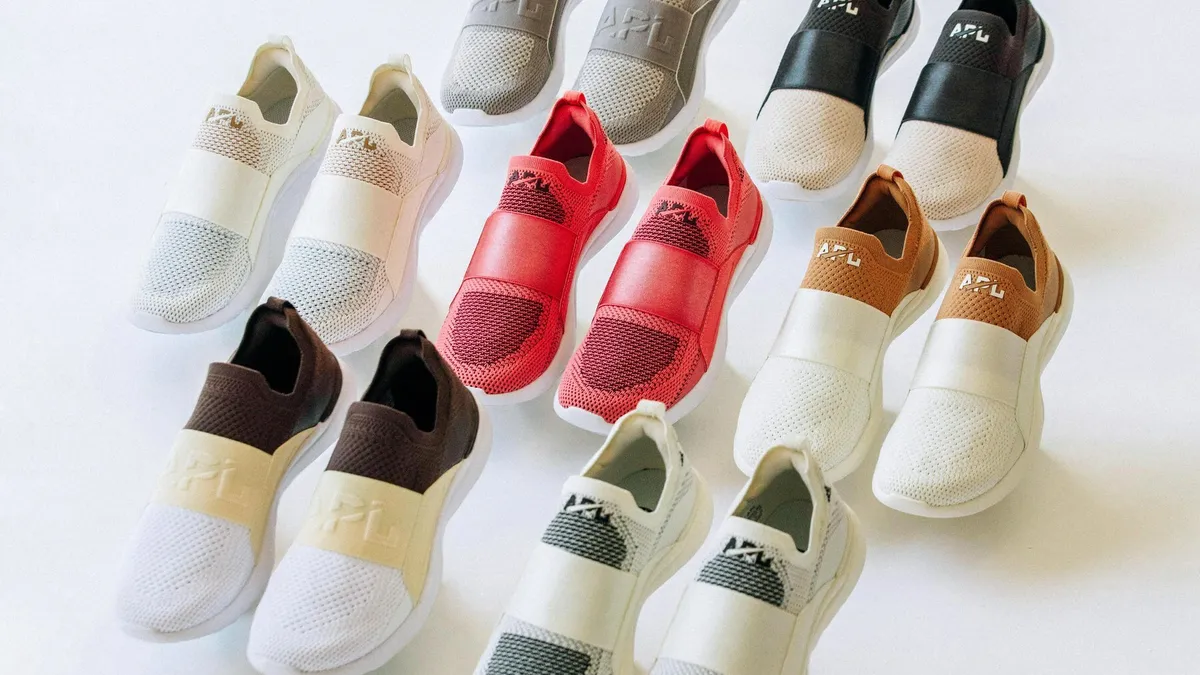Dive Brief:
- Luxury sneaker brand Athletic Propulsion Labs teamed up with True Fit, the AI-powered fitting platform, to offer fit recommendations leading to increased e-commerce performance, the company announced Monday.
- Using demographic data, fit preferences, buying trends of international customers and artificial intelligence, True Fit provides personalized fit recommendations to shoppers who register their True Fit profile.
- So far, APL has seen its revenue grow by 2% and its returns reduced by 15%, per the press release.
Dive Insight:
APL’s relationship with True Fit began in 2019 as the brand grew its direct-to-consumer business to help customers buy their ideal shoes. The brand’s decision to offer product fit recommendations stems from research indicating that finding fit improves customer loyalty and conversion rates, NJ Falk, managing partner at APL, said in a statement.
“We choose True Fit because consumers have a trust level with the brand. It gives them confidence during the buying process as sizing can often seem complicated in the virtual world,” Falk said in a statement. “True Fit takes the guesswork out of the process making it easy for the consumer to determine their true size while reducing the likelihood of a consumer ordering and returning multiple sizes.”
Brands have been exploring digital fitting technologies to match shoppers with products that will suit their needs and tastes. In a similar move, Volumental, a shoe-fitting technology company, tested its self-service foot scanners that use AI to measure shoppers’ feet and provide shoe recommendations with Under Armour.
Beyond activewear brands, other companies have been introducing virtual fitting technology for customers in recent years. While ThirdLove introduced its 3D online fit quiz in 2021, Victoria’s Secret & Co. partnered with NetVirta to add virtual fitting technology to its mobile app for Victoria’s Secret and Victoria’s Secret Pink bras.
Meanwhile, Walmart and Google have jumped on the trend, too. Walmart acquired Zeekit, a virtual fitting tech provider, for an undisclosed sum in 2021 to offer product recommendations based on consumers’ body types. Over the summer, Google unveiled its virtual try-on tool using generative artificial intelligence to make finding the right fit easier while shopping online.
While retailers seek sizing technologies to cut returns, returns continue to be costly for them to manage. Per a 2022 National Retail Federation report, total returns account for $816 billion in lost sales for U.S. retailers.















